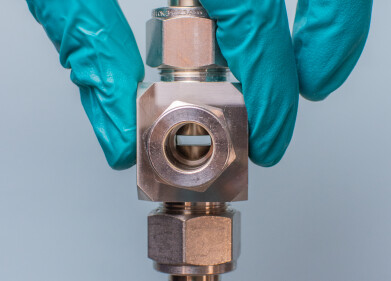Mass Spectrometry & Spectroscopy
When Should Children Stop Napping?
Jun 10 2019
For most parents, napping is a ritual that improves the mood, boosts energy levels and offers a few moments of solace in a busy day. Now, a new study from the University of Pennsylvania and the University of California has confirmed that napping for 30 to 60 minutes a day at least three times a week can minimise behavioural problems and increase overall happiness. Furthermore, the study suggests that children who nap usually excel academically and have higher IQs.
The findings were published in the journal SLEEPbacks and analysed the napping patterns of around 3000 fourth, fifth, and sixth graders aged between 10 and 12. Researchers discovered an interesting link between midday napping and overall levels of self-control, determination and happiness. They also found that regular naps correlate with fewer behavioural problems and higher IQs, particularly in older children.
Napping boosts academic performance
Academic prowess was the most robust link, with Adrian Raine, University of Pennsylvania neurocriminologist and co-author of the paper explaining, "Children who napped three or more times per week benefit from a 7.6% increase in academic performance in Grade 6."
The findings prompted the team to explore the issue of sleep deficiency daytime drowsiness, which affects up to 20% of all fourth, fifth, and sixth graders. Jianghong Li, lead author on the study and associate professor of nursing and public health at the University of Pennsylvania reminds readers that the negative physical, cognitive and emotional effects of sleep deprivation are well-established and can have a particularly harsh impact on young, developing bodies. She compares the United States to countries like China, where napping is a daily ritual that starts in childhood and continues throughout elementary and middle school, as well as into adulthood.
Study supports calls to introduce school nap times
For the team, the findings offer an alternative to calls from paediatricians and child health experts to implement later school start times. Instead, they suggest that a simple midday nap could help boost academic performance and increase overall happiness.
"Many lab studies across all ages have demonstrated that naps can show the same magnitude of improvement as a full night of sleep on discrete cognitive tasks. Here, we had the chance to ask real-world, adolescent schoolchildren questions across a wide range of behavioural, academic, social, and physiological measures," says Sara Mednick, a sleep researcher at the University of California Irvine. "The more students sleep during the day, the greater the benefit of naps on many of these measures."
From sleep studies to NMR spectroscopy, research plays a central role in fast-tracking scientific breakthroughs. For a closer look at the latest technique being used to determine the concentration of certain chemicals in sample solutions don't miss 'Optimising measurement conditions for accurate qNMR analysis'.
Digital Edition
Lab Asia 31.6 Dec 2024
December 2024
Chromatography Articles - Sustainable chromatography: Embracing software for greener methods Mass Spectrometry & Spectroscopy Articles - Solving industry challenges for phosphorus containi...
View all digital editions
Events
Jan 22 2025 Tokyo, Japan
Jan 22 2025 Birmingham, UK
Jan 25 2025 San Diego, CA, USA
Jan 27 2025 Dubai, UAE
Jan 29 2025 Tokyo, Japan



















